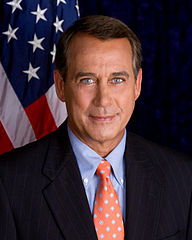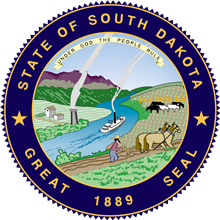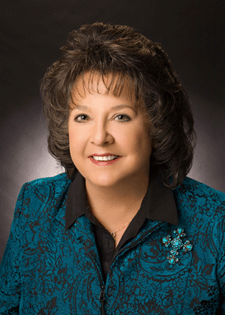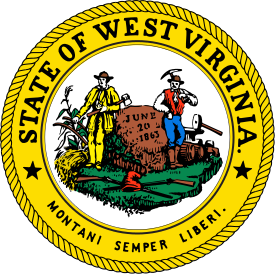September 25, 2015 •
U.S. House Speaker John Boehner Resigning in October
U.S. House Speaker John Boehner will resign and give up his seat in Congress at the end of October, according to his aides. He is currently under intense pressure from conservatives to defund Planned Parenthood as he attempts to keep […]
 U.S. House Speaker John Boehner will resign and give up his seat in Congress at the end of October, according to his aides. He is currently under intense pressure from conservatives to defund Planned Parenthood as he attempts to keep the government open through the end of the year. Several members of the conservative base vowed not to vote for a bill if it did not defund the organization, and some are on a path to remove him as speaker.
U.S. House Speaker John Boehner will resign and give up his seat in Congress at the end of October, according to his aides. He is currently under intense pressure from conservatives to defund Planned Parenthood as he attempts to keep the government open through the end of the year. Several members of the conservative base vowed not to vote for a bill if it did not defund the organization, and some are on a path to remove him as speaker.
Since becoming speaker in 2011, Boehner has struggled to navigate politically with a polarized Congress and its increasingly conservative Republican members. Boehner’s announcement comes just a day after he had a private audience with Pope Francis at the Capitol. House Majority Leader Kevin McCarthy is expected to serve as the next speaker.
September 25, 2015 •
News You Can Use Digest – September 25, 2015
Federal: ‘Lobbying’ Firm Raises More Questions than Answers The Hill – Megan Wilson | Published: 9/24/2015 The DG Group appears to have all the trappings of a Washington lobby firm. Featuring images of the Capitol dome and promises of inside access, its website […]

Federal:
‘Lobbying’ Firm Raises More Questions than Answers The Hill – Megan Wilson | Published: 9/24/2015
The DG Group appears to have all the trappings of a Washington lobby firm. Featuring images of the Capitol dome and promises of inside access, its website advertises a “scalable lobbying and global advocacy consultancy firm” with a track record of success. But much of the site is phony. It uses text lifted from the BGR Group, the lobbying firm founded by former Mississippi Gov. Haley Barbour. The DG Group origin statement includes a paragraph from the website of Mercury, a global public relations firm with a Washington office. Photographs of DG Group lobbyists appear to be taken from PR websites and stock-photo archives. One of the people pictured as part of the firm’s leadership is a professor at Duke University’s Divinity School. Another is a comedian based in San Diego.
Political Parties Go after Million-Dollar Donors in Wake of Looser Rules
Washington Post – Matea Gold and Tom Hamburger | Published: 9/19/2015
The Republican National Committee is asking donors for $1.34 million per couple this election cycle. Democratic contributors, meanwhile, are being hit up for even more, about $1.6 million per couple, to support the party’s convention and a separate joint fundraising effort between the Democratic National Committee and Hillary Clinton’s campaign. In return, elite donors are being promised perks such as exclusive retreats with top party leaders and VIP treatment at the nominating conventions. Just four years ago, the most a donor could give a national political party was $30,800. The dramatic rise has been driven by the U.S. Supreme Court’s McCutcheon decision that did away with a cap on how much a political donor could give in an election cycle, and an expansion of party fundraising tucked into a recent appropriations bill.
Scott Walker’s Demise Shows Limits of ‘Super PAC’ Money Model
New York Times – Nicholas Confessore | Published: 9/22/2015
The super PAC backing Scott Walker was on pace to raise as much as $40 million by the end of the year, but Walker abruptly ended his campaign for the Republican presidential nomination largely because he was out of cash. His withdrawal from the GOP primary, like that of former Texas Gov. Rick Perry, highlights the limitations of the new fundraising model. Super PACs cannot pay rent, phone bills, salaries, or ballot access fees. They are not entitled to the preferential rates on advertising that federal law grants candidates, forcing them to pay far more money than candidates must for the same television and radio time. The fates of Walker and Perry hint at the systemic dangers of the super PAC-driven financial model on which virtually the entire Republican field has staked its chances.
From the States and Municipalities:
California – State Panel Outlaws ‘Dark Money’ in California Political Campaigns
Los Angeles Times – Patrick McGreevy | Published: 9/17/2015
The California Fair Political Practices Commission will now require out-of-state nonprofits to disclose their donors when they oppose or support a ballot measure or candidate through a federal PAC. The move came in the wake of fines levied against two Arizona nonprofits after they refused to reveal their donors behind two campaigns. The commission also voted to improve its program that identifies the top ten contributors to ballot measures on the its website. If one of the top ten donors is a group with a generic name that does not indicate who is behind it, the new rules would require it to disclose its top two contributors.
Colorado – Denver Gives Red light to Inspectors Consulting for Marijuana Industry
Denver Post – Jon Murray | Published: 9/23/2015
City inspectors for marijuana licensing in Denver asked the Board of Ethics for its blessing to work as paid consultants to the cannabis industry elsewhere. The board’s answer was a resounding no. Its advisory opinion cites concerns about potential conflicts-of-interest and bad appearances, saying such work would violate the city’s ethics code. Legislation passed this year soon will bar any work or consulting for the marijuana industry until six months after an employee has left his or her state job. The inspectors’ request reflects some remaining uncertainty as Denver and Colorado traverse the new landscape of legal recreational marijuana.
Florida – Corcoran Lobbies for Lobbyist Rules
Lakeland Ledger – Lloyd Dunkelberger | Published: 9/20/2015
Republicans elected Rep. Richard Corcoran as the next speaker of the Florida House, and he immediately laid out the most ambitious set of lobbying reforms that the state capital has seen in a decade. Corcoran, whose brother, Michael, is a prominent Capitol lobbyist, said the public is fed up with how money and political backscratching is controlling the agenda from Washington to Tallahassee. “The enemy is not the special interests; the enemy is not the press; the enemy is not any of that stuff. The enemy has always been and will always be us,” Corcoran told House members.
Kentucky – GOP State Senator Suing to Overturn Kentucky Laws Limiting Campaign Donations
Lexington Herald-Leader – John Cheves | Published: 9/23/2015
Kentucky Sen. John Schickel and two Libertarian candidates are suing to overturn state laws limiting campaign donations to $1,000 and prohibiting gifts to legislators from lobbyists. They also want the court to strike down rules prohibiting lobbyists from donating money to legislators or legislative candidates and that bar the employers of lobbyists from contributing while the General Assembly is in session. They say the laws violate their constitutional rights to free speech and equal protection by restricting their access to people who want to help them. But state regulators say the laws are meant to prevent bribery at the Capitol. Most were enacted after Operation BOPTROT, an FBI investigation in 1992 that exposed 15 current or former legislators who sold their votes.
Michigan – Kilpatrick Pal Gets 11 Years in City Pension Scandal
Detroit News – Robert Snell | Published: 9/21/2015
Former Detroit Treasurer Jeffrey Beasley was sentenced to 11 years in prison for taking bribes and kickbacks in a scheme that cost the city’s pension funds $97 million in losses. Beasley, who was Kwame Kilpatrick’s fraternity brother and a pension trustee while his friend was mayor, received the third-longest sentence of anyone targeted in the FBI’s decade-long corruption probe that netted 38 convictions. Beasley and Kilpatrick were both trustees to the pension funds. The federal government says the pair accepted lavish gifts – including private jet travel, trips and golf outings – from an investment adviser to the city’s pension funds in exchange for favoritism before the pension board.
Missouri – Missouri Legislators Serve Hors d’Oeuvres, Lobbyists Pass the Envelopes
St. Louis Post-Dispatch – Kevin McDermott | Published: 9/20/2015
On the eve of the one-day veto session of the Missouri Legislature, and for a few hours on the morning of the session, about 60 of lawmakers hosted or co-hosted 18 separate campaign fundraising events in Jefferson City. The attendees are not charged admission or a per-plate fee. Rather, they hand over checks at their own discretion as they enter. Most are lobbyists representing special interests whose fates the lawmakers can decide with their votes. “At the end of the day, checks are going to come in either way; this is a just a chance that they get to hand it to us instead of putting it in a P.O. Box. Everybody does it,” said Rep. Caleb Rowden.
New York – William Boyland Jr., Ex-New York Assemblyman, Gets 14-Year Sentence for Corruption
New York Times – Nicholas Casey | Published: 9/17/2015
Former New York Assemblyperson William Boyland, Jr. was sentenced to 14 years in prison and ordered to pay more than $325,000 for using his public post for personal gain. He was arrested in 2011, weeks after being acquitted in an unrelated bribery case, and charged with accepting bribes in exchange for political favors during a five-year period starting in 2007. In one instance, the authorities said at trial, Boyland funneled $200,000 of public money for the elderly to a nonprofit organization that he controlled and used the money to pay for events promoting his campaign, such as a boat cruise and “Team Boyland” T-shirts. He was also convicted of seeking reimbursement for more than $70,000 in false travel expenses.
Ohio – Disclosure Rules for Gifts Vague for Ohio’s Local Politicians
Columbus Dispatch – Lucas Sullivan | Published: 9/21/2015
Ethics has become a top issue in the races for Columbus City Council and mayor. The FBI is investigating the city’s red-light-camera contracts, and Councilperson Michelle Mills stepped down unexpectedly after questions were raised about the trip she and three other council members took with lobbyist John Raphael last year to the Big Ten championship football game. A Columbus Dispatch review found the disclosure rules for Ohio’s elected officials at the municipal level are vague and do not require complete disclosure. For example, unlike at the state level, lobbyists do not have to disclose their financial activity at the municipal level.
Ohio – Ohio Judge Loses Fundraising Challenge
Courthouse News Service – Lorraine Bailey | Published: 9/21/2015
An appeals court ruled the strict limitations that state judges in Ohio face on campaign fundraising do not violate the First Amendment. Colleen O’Toole is a candidate in the 2016 Ohio Supreme Court election. Her campaign claimed the state Code of Judicial Conduct was doing its best to keep her campaign grounded by prohibiting judicial candidates from personally soliciting campaign contributions unless they are speaking to a general audience of at least 20 people, and by making candidates legally responsible for the actions of their campaign committees, along with other restrictions. Sitting Ohio Supreme Court judges may have campaign funds left over from a prior judicial race that they can use to support their candidacy at any time, O’Toole said. But the appeals court affirmed the code of conduct, and held the rules are not the cause of the disparity that O’Toole’s campaign committee complains of.
Pennsylvania – Donations by Philly Sheriff’s Top OT Earners Raise Eyebrows
Philadelphia Inquirer – Claudia Vargas | Published: 9/20/2015
Nearly all the top recent earners of overtime in Philadelphia Sheriff Jewell Williams’ office had donated to his campaign fund. Williams said the contributions, typically $100 or $125 a year, reflected employees’ satisfaction with his work. In the fiscal year that ended June 30, records show 21 deputies with salaries anywhere from $58,000 to $76,000 earned enough overtime to boost their pay well into six figures. Most deputies who received little or no overtime in the most recent fiscal year did not donate to the campaign fund. Williams’ chief finance officer, Benjamin Hayllar, said: “There’s no quid pro quo here.”
Pennsylvania – Pa. Supreme Court Suspends Kane’s License
Philadelphia Inquirer – Angela Couloumbis and Craig McCoy | Published: 9/21/2015
The Pennsylvania Supreme Court ordered the suspension of the law license of state Attorney General Kathleen Kane, a step that could set up a Senate vote to remove her as she faces criminal charges. The unanimous order by the court could also prompt a legal challenge from Kane. In the meantime, the order has created the complication of leaving the state’s top law enforcement official, who is in charge of a 750-employee office and a $93 million budget, without the ability to act as a lawyer, at least temporarily. The order came after Montgomery County authorities arrested Kane on accusations she had leaked secret investigative information to a newspaper reporter and then lied about it under oath. She was charged with perjury, obstruction, and other counts.
Washington – State’s Disclosure Commission Names Tacoma Lawyer as New Director
Everett Herald – Jerry Cornfield | Published: 9/23/2015
Evelyn Lopez was chosen as the new executive director of the Washington Public Disclosure Commission. Lopez, a former assistant state attorney general, will take the helm as the commission looks to upgrade its technology to make it easier for the public to track the flow of money in campaigns through the agency’s online database. Lopez did not reveal any initiatives she wants to launch immediately but said there are a lot of issues out there related to the financing of campaigns. “If you’re a politician and you’re asking people to give you their hard earned money, you’ve got to be honest about how it is used; I am absolutely committed to open government and an informed electorate,” Lopez said.
 State and Federal Communications produces a weekly summary of national news, offering more than 60 articles per week focused on ethics, lobbying, and campaign finance.
State and Federal Communications produces a weekly summary of national news, offering more than 60 articles per week focused on ethics, lobbying, and campaign finance.
September 24, 2015 •
South Dakota Attorney General Explains Potential 2016 Ballot Measure
South Dakota Attorney General Marty Jackley recently released a statement describing a ballot measure to create a publicly funded campaign finance program. The program would allocate monetary credits to voters who could assign them to candidates. The measure would also […]
 South Dakota Attorney General Marty Jackley recently released a statement describing a ballot measure to create a publicly funded campaign finance program. The program would allocate monetary credits to voters who could assign them to candidates.
South Dakota Attorney General Marty Jackley recently released a statement describing a ballot measure to create a publicly funded campaign finance program. The program would allocate monetary credits to voters who could assign them to candidates.
The measure would also lower political contribution limits and create a revolving door provision for certain state officials seeking to become lobbyists. Said officials would be banned from lobbying for two years after leaving office.
Supporters must collect nearly 14,000 signatures to get the measure on the 2016 ballot.
September 24, 2015 •
Alaska Governor to Call Special Session
Alaska Gov. Bill Walker plans to call a special legislative session to address details of, and issues related to, the development of a natural gas pipeline. The state is currently developing the project with three oil producers and a pipeline […]
 Alaska Gov. Bill Walker plans to call a special legislative session to address details of, and issues related to, the development of a natural gas pipeline. The state is currently developing the project with three oil producers and a pipeline company.
Alaska Gov. Bill Walker plans to call a special legislative session to address details of, and issues related to, the development of a natural gas pipeline. The state is currently developing the project with three oil producers and a pipeline company.
Because Walker is required to give legislators a 30 day notice, the special session cannot begin until the end of October at the earliest. Walker expects the session to conclude before Thanksgiving and would prefer it be held in Juneau despite ongoing renovations at the state Capitol.
September 24, 2015 •
Thursday New Roundup
Lobbying “Donald Trump Says He Doesn’t Need Lobbyists. He’s Probably Wrong.” by Tina Nguyen for Vanity Fair “Sandy Murman Announces Effort to Clean Up Special Interests’ Influence in County Government” by Staff for SaintPetersBlog Campaign Finance “The Campaign-Finance Activist Who […]
 Lobbying
Lobbying
“Donald Trump Says He Doesn’t Need Lobbyists. He’s Probably Wrong.” by Tina Nguyen for Vanity Fair
“Sandy Murman Announces Effort to Clean Up Special Interests’ Influence in County Government” by Staff for SaintPetersBlog
Campaign Finance
“The Campaign-Finance Activist Who Thinks We Need More Money in Politics, Not Less” by Marin Cogan for New York Magazine
“Scott Walker’s Demise Shows Limits of ‘Super PAC’ Money Model” by Nicholas Confessore for New York Times
Ethics
“Hillary Clinton Proposes Cap on Patients’ Drug Costs as Bernie Sanders Pushes His Plan” by Patrick Healy and Margot Sanger-Katz for New York Times
Alabama: “Todd Opinion Draws Fire, Becomes Point in Hubbard Case” by Brian Lyman for Montgomery Advertiser
Kentucky: “GOP State Senator Suing to Overturn Kentucky Laws Limiting Campaign Donations” by John Cheves for Lexington Herald-Leader
Rhode Island: “Political Scene: R.I. lawmaker Lombardo gets a piece of action in state contract” by Jennifer Bogdan and Katherine Gregg for Providence Journal
Washington: “State’s Disclosure Commission Names Tacoma Lawyer as New Director” by Jerry Cornfield for Everett Herald
Procurement
Iowa: “Board Files Ethics Charges against Iowa Purchasing Executive” by Ryan Foley (Associated Press) for Des Moines Register
September 23, 2015 •
Washington PDC Names New Director
The Public Disclosure Commission has named Evelyn Fielding Lopez as the agency’s new executive director. Lopez, a Tacoma lawyer who formally worked as an assistant attorney general, will begin work on October 1. The former executive director, Andrea McNamara Doyle, […]
 The Public Disclosure Commission has named Evelyn Fielding Lopez as the agency’s new executive director.
The Public Disclosure Commission has named Evelyn Fielding Lopez as the agency’s new executive director.
Lopez, a Tacoma lawyer who formally worked as an assistant attorney general, will begin work on October 1.
The former executive director, Andrea McNamara Doyle, resigned in May 2015.
September 23, 2015 •
Wednesday Government Relations News
Lobbying “K Street Merger Yields New Lobbying Powerhouse” by Megan Wilson for The Hill Oregon: “Portland Weighing Rules on Lobbying by Political Consultants” by Brad Schmidt for Portland Oregonian Campaign Finance New Jersey: “Greater Transparency Urged for Political Donations by […]
 Lobbying
Lobbying
“K Street Merger Yields New Lobbying Powerhouse” by Megan Wilson for The Hill
Oregon: “Portland Weighing Rules on Lobbying by Political Consultants” by Brad Schmidt for Portland Oregonian
Campaign Finance
New Jersey: “Greater Transparency Urged for Political Donations by Private Pension Managers” by John Reitmeyer for NJ Spotlight
Ohio: “Ohio Judge Loses Fundraising Challenge” by Lorraine Bailey for Courthouse News Service
Pennsylvania: “Donations by Philly Sheriff’s Top OT Earners Raise Eyebrows” by Claudia Vargas for Philadelphia Inquirer
Washington: “Eyman Received Secret Payments from Signature Firm, PDC Says” by Jim Brunner for Seattle Times
Ethics
Colorado: “State Supreme Court Weighs Colorado Ethics Commission Secrecy” by Marianne Goodland for Colorado Independent
Michigan: “Kilpatrick Pal Gets 11 Years in City Pension Scandal” by Robert Snell for Detroit News
New York: “William Boyland Jr., Ex-New York Assemblyman, Gets 14-Year Sentence for Corruption” by Nicholas Casey for New York Times
New York: “Will Review of Ethics Watchdog Have Bite?” by Chris Bragg for Albany Times Union
September 22, 2015 •
New Mexico Secretary of State Charged with Misuse of Campaign Donations
New Mexico’s Secretary of State pleaded not guilty to charges relating to the misuse of campaign funds. Dianna Duran is accused of funneling campaign contributions into personal accounts, filing false campaign finance disclosures, and using the funds to frequent casinos. […]
 New Mexico’s Secretary of State pleaded not guilty to charges relating to the misuse of campaign funds. Dianna Duran is accused of funneling campaign contributions into personal accounts, filing false campaign finance disclosures, and using the funds to frequent casinos.
New Mexico’s Secretary of State pleaded not guilty to charges relating to the misuse of campaign funds. Dianna Duran is accused of funneling campaign contributions into personal accounts, filing false campaign finance disclosures, and using the funds to frequent casinos.
Amid pressure to resign, Duran’s attorney said she has not been convicted of a crime and will remain the sitting secretary of state. State legislators will meet later this month to begin an investigation as part of impeachment proceedings.
September 22, 2015 •
Attending the Congressional Black Caucus Foundation’s ALC
Last week, I attended the Congressional Black Caucus Foundation’s Annual Legislative Conference (ALC), which was held in Washington, D.C. at the Walter E. Washington Convention Center. During the four-day conference, I attended a variety of sessions focusing on the issue […]
 Last week, I attended the Congressional Black Caucus Foundation’s Annual Legislative Conference (ALC), which was held in Washington, D.C. at the Walter E. Washington Convention Center. During the four-day conference, I attended a variety of sessions focusing on the issue of Health Disparities, Women’s’ Representation in the Media, Voting in the 2016 Election, and Racial Injustice — just to name a few. I found the sessions very engaging and informative. The speakers were knowledgeable and thought-provoking, and they definitely inspired me to roll up my sleeves and “stop talking and start doing!”
Last week, I attended the Congressional Black Caucus Foundation’s Annual Legislative Conference (ALC), which was held in Washington, D.C. at the Walter E. Washington Convention Center. During the four-day conference, I attended a variety of sessions focusing on the issue of Health Disparities, Women’s’ Representation in the Media, Voting in the 2016 Election, and Racial Injustice — just to name a few. I found the sessions very engaging and informative. The speakers were knowledgeable and thought-provoking, and they definitely inspired me to roll up my sleeves and “stop talking and start doing!”
In addition to attending the educational sessions, the ALC is a great opportunity for networking and the exchange of ideas. I ran into some old friends, and made some new ones as well! I am looking forward to attending next year’s ALC – won’t you join me?
September 22, 2015 •
West Virginia Ethics Commission Announces Training Course
The West Virginia Ethics Commission announced a one-hour training course on the Ethics Act. Lobbyists new to West Virginia must complete this course within 90 days of registration and all other lobbyists must complete one training course during the registration […]
 The West Virginia Ethics Commission announced a one-hour training course on the Ethics Act. Lobbyists new to West Virginia must complete this course within 90 days of registration and all other lobbyists must complete one training course during the registration cycle (January 1, 2015 to December 31, 2016).
The West Virginia Ethics Commission announced a one-hour training course on the Ethics Act. Lobbyists new to West Virginia must complete this course within 90 days of registration and all other lobbyists must complete one training course during the registration cycle (January 1, 2015 to December 31, 2016).
The course will take place on October 22, 2015 at 11:00 a.m. in the Ethics Commission’s conference room. An online video is also available for lobbyists to fulfill their training obligations.
September 22, 2015 •
Tuesday Lobbying and Campaign Finance News Update
Lobbying Florida: “Corcoran Lobbies for Lobbyist Rules” by Lloyd Dunkelberger for Lakeland Ledger Campaign Finance “Political Parties Go after Million-Dollar Donors in Wake of Looser Rules” by Matea Gold and Tom Hamburger for Washington Post “Pro-Rick Perry Super PACs Give […]
 Lobbying
Lobbying
Florida: “Corcoran Lobbies for Lobbyist Rules” by Lloyd Dunkelberger for Lakeland Ledger
Campaign Finance
“Political Parties Go after Million-Dollar Donors in Wake of Looser Rules” by Matea Gold and Tom Hamburger for Washington Post
“Pro-Rick Perry Super PACs Give Back Millions” by Carrie Levine for Center for Public Integrity
California: “State Panel Outlaws ‘Dark Money’ in California Political Campaigns” by Patrick McGreevy for Los Angeles Times
Missouri: “Missouri Legislators Serve Hors d’Oeuvres, Lobbyists Pass the Envelopes” by Kevin McDermott for St. Louis Post-Dispatch
Pennsylvania: “Pennsylvania Senate Proposal Would Out ‘Dark Money’ Political Groups” by Kate Giammarise for Pittsburgh Post-Gazette
Ethics
California: “Political Panel Opposes Bill Easing Disclosure Rules” by Jeff McDonald for San Diego Union-Tribune
Maryland: “O’Malley Won’t Face Ethics Inquiry over Mansion Furniture Purchases” by John Wagner for Washington Post
Ohio: “Disclosure Rules for Gifts Vague for Ohio’s Local Politicians” by Lucas Sullivan for Columbus Dispatch
Pennsylvania: “Pa. Supreme Court Suspends Kane’s License” by Angela Couloumbis and Craig McCoy for Philadelphia Inquirer
South Dakota: “Bipartisan Effort Could Overhaul Campaign, Election Law” by Dana Ferguson for Sioux Falls Argus Leader
Elections
“Report: Campaign woes prompt Scott Walker to drop out of race” by Jason Stein, Patrick Marley, and Mary Spicuzza for Milwaukee Journal Sentinel
September 21, 2015 •
See you at 2015 PAC State & Local Government Relations Conference!
State and Federal Communications, Inc. is a proud Silver Sponsor of the 2015 Public Affairs Council State & Local Government Relations Conference. The event will take place September 23-25 in Alexandria, Virginia. President and CEO Elizabeth Bartz and six team […]
State and Federal Communications, Inc. is a proud Silver Sponsor of the 2015 Public Affairs Council State & Local Government Relations Conference. The event will take place September 23-25 in Alexandria, Virginia. President and CEO Elizabeth Bartz and six team members are looking forward to lively discussions and high-quality content, and consider this a must-attend event for all state government affairs professionals.
Make sure to follow the conference on Twitter at #SLGR15. We hope to see you there!
September 21, 2015 •
Monday News Roundup
Campaign Finance “Vet Group Hosting Trump Lost Nonprofit Status” by Jeff Horwitz (Associated Press) for Miami Herald New Mexico: “Campaign Finance Reports to Be Reviewed in Wake of Scandal” by Susan Montoya Bryan (Associated Press) for Las Cruces Sun-News Ethics […]
 Campaign Finance
Campaign Finance
“Vet Group Hosting Trump Lost Nonprofit Status” by Jeff Horwitz (Associated Press) for Miami Herald
New Mexico: “Campaign Finance Reports to Be Reviewed in Wake of Scandal” by Susan Montoya Bryan (Associated Press) for Las Cruces Sun-News
Ethics
California: “California Initiative Would Require More Campaign Finance Disclosure” by Christopher Cadelago for Sacramento Bee
Georgia: “Georgia ‘Watchdog’ Rolls Out New Mission” by Walter Jones (Morris News Service) for Augusta Chronicle
Pennsylvania: “Ex-LCB Marketing Director Pleads Guilty in Federal Bribery Case” by Matt Miller for Harrisburg Patriot-News
Rhode Island: “R.I. Elections Board Issues Warning to Director” by Jennifer Bogdan for Providence Journal
Elections
Connecticut: “Former Bridgeport Mayor, Out of Prison, Declares Victory in Primary” by The Associated Press for New York Times
Procurement
Pennsylvania: “With FBI Probing City Hall, Allentown Council Widens Contract Role” by Paul Muschick for Allentown Morning Call
September 18, 2015 •
Frederick County, Maryland Considers Ethics Law Changes
Frederick County, Maryland County Council President Bud Otis has introduced legislation to give the County Ethics Commission subpoena powers and increase the size of the commission from five to seven members. The ethics bill, which Otis submitted on September 15, […]
 Frederick County, Maryland County Council President Bud Otis has introduced legislation to give the County Ethics Commission subpoena powers and increase the size of the commission from five to seven members. The ethics bill, which Otis submitted on September 15, includes making a violation of the lobbying rules or the financial disclosure laws a misdemeanor. The council will hear public comments on the proposals at a future meeting and then vote at a subsequent hearing, according to the Frederick News-Post.
Frederick County, Maryland County Council President Bud Otis has introduced legislation to give the County Ethics Commission subpoena powers and increase the size of the commission from five to seven members. The ethics bill, which Otis submitted on September 15, includes making a violation of the lobbying rules or the financial disclosure laws a misdemeanor. The council will hear public comments on the proposals at a future meeting and then vote at a subsequent hearing, according to the Frederick News-Post.
State and Federal Communications, Inc. provides research and consulting services for government relations professionals on lobbying laws, procurement lobbying laws, political contribution laws in the United States and Canada. Learn more by visiting stateandfed.com.


